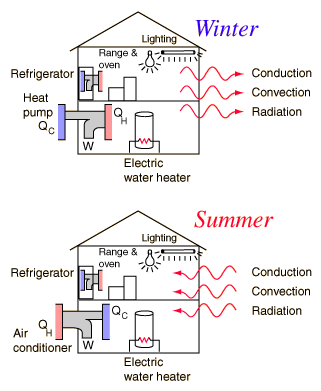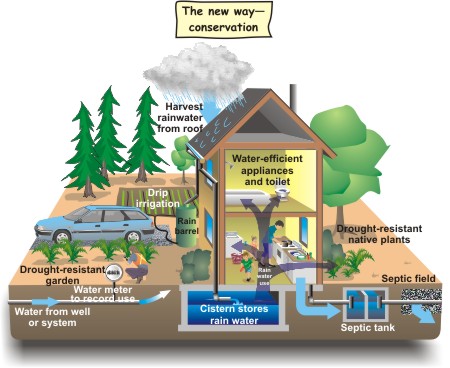
Course Index to class activity sites used in writings
CORE, acronym standing for a means to clarify, organize, reflect, and evaluate ideas.
Given our nation's legacy of preservation, conservation and consumption explain what you think triggered and sustained the preservation and conservation movements that led to environmental protection today?
writing guide | Writing from texts | writing coherent papers
![]() A. Argument is always in the form of a thesis
A. Argument is always in the form of a thesis
![]() B. because you believe that
B. because you believe that
![]() C. clarity and contrast of descriptions
C. clarity and contrast of descriptions
![]() D. descriptions of terms you defined to explain
D. descriptions of terms you defined to explain
![]() E. evidence from texts and of examples these author's used in (See the Wiki Pages index)
E. evidence from texts and of examples these author's used in (See the Wiki Pages index)
![]() F. framing your multiple sources of support.
F. framing your multiple sources of support.
 • Marshes of the Ocean Shore, Joseph V. Siry, –– "scientific preservation"
• Marshes of the Ocean Shore, Joseph V. Siry, –– "scientific preservation"
• Land of Little Rain, Mary Austin, –– "Transcendentalist preservation"
• The Worst Hard Times, Timothy Egan –– "Conservationists & soil"
• The Bulldozer in the Countryside, Adam Rome –– "Open space movement"
Support for your contentions.
"the building boom came at a considerable environmental cost. The reckoning of those costs began almost immediately. By 1950, . . . a number of people had already become concerned about the energy-wasting design of the typical post-war home. Yet the critics of tract housing faced formidable obstacles, because the new way of building met so many economic, social, and political demands."
"The nation's largest builders were answering the prayers of millions."
Rome in concluding remarks argues that Fortune magazine in June 1950 (page 67) contended that:
"Building . . . . has become the gaudiest of all business booms within the Great American Boom, that postwar wonder now nearing five years old. It can be viewed as . . . the crucial prop beneath the boom."
Adam Rome, Bulldozer, p. 43.
A contention is an assertion, especially made in an argument to support the premise.
A premise is a proposition that forms the basis of any argument, theory, or analysis.
for example: Emerson is arguing that no one owns the landscape and the premise is that they may own the land as property, but there is a residual quality existing (for the poet to comprehend and interpret) in and intrinsic to the "landscape" created by all of these privately held farmsteads through which he is walking.



What a home does and what a home could be redesigned to do and contribute to using fewer scarce resources.
A. Long, long ago Henry David Thoreau suggested that any town needed a 100 acres of trees reserved; how is that like the call for open space utilized by President Johnson to pass environmental protection laws?
B. Because the ideas and people associated with organic revolt were ignored?
C. Columbia, Maryland is the model or case study that is the exception to the prevailing trends (see Rome at top of p. 211.) from 1940-2008.
D. Describe, Define, & Delineate the details
E.
Essay – In writing and revising this paper based on all of the authors, you should pay particular attention to the development of ecological understanding of land and water protection in the rise of conservation. Use all of the authors to convey what you think triggered and sustained the preservation and conservation movements that led to environmental protection today.
(√)
| 4. | An Essay (drafted submitted & redrafted) on protecting ecosystems. | 25% |
F. Framework:
As Elizabeth Ann R. Bird has said "From [environmental] histories we can infer the modes of thought and behavior that are more likely than others to be detrimental to the environment we want to live in. A primary element of such histories should be the social analysis of scientific knowledge construction, because many technologies that are science-based cause so many environmental problems."
Analyzing what Dr. Bird is suggesting:
1. A primary element of such histories (what you are writing) Environmental history ought to start with ecology.
2. the social analysis of scientific knowledge
3.cause so many environmental problems."
A) Acid Rain from coal burning plant, or
B) contamination of rivers by toxicants and cancer inducing waste materials, or
C) fracturing shale to release gas.
We read in order to actively discuss and examine the ideas shaping our national character as portrayed by authors: Nash, Pursell, Siry, Emerson, Thoreau, Austin, Egan, & Rome.
Form for completing a narrative
Narrative Structure of an essay J. V. Siry, Ph.D
Organizing your arguments and evidence.
Writing carefully to discover meaning.*
The subject __________________; of a paper about _________________________________:
The thesis is ___________________________________________________________________.
1.The Precondition
“Stems from the conviction that?
2. The Buildup:
3. The Main Event:
4. The main events' Meaning
5. The wind-down or dénouement:
6. The Outcome
(i.e.) Environmental protection has become _____________________________________
7. Consequences
* For an example of a consequence: “we have lost our sense of the very meaning of human activity.”
Octavio Paz, The Labyrinth of Solitude, (1950) page 26.
subjects related to land and land-use
Leopold & Carson on landscapes
America's frontier landscape heritage
Approach to writing | Word choice | writing guide | writing from texts | writing coherent papers